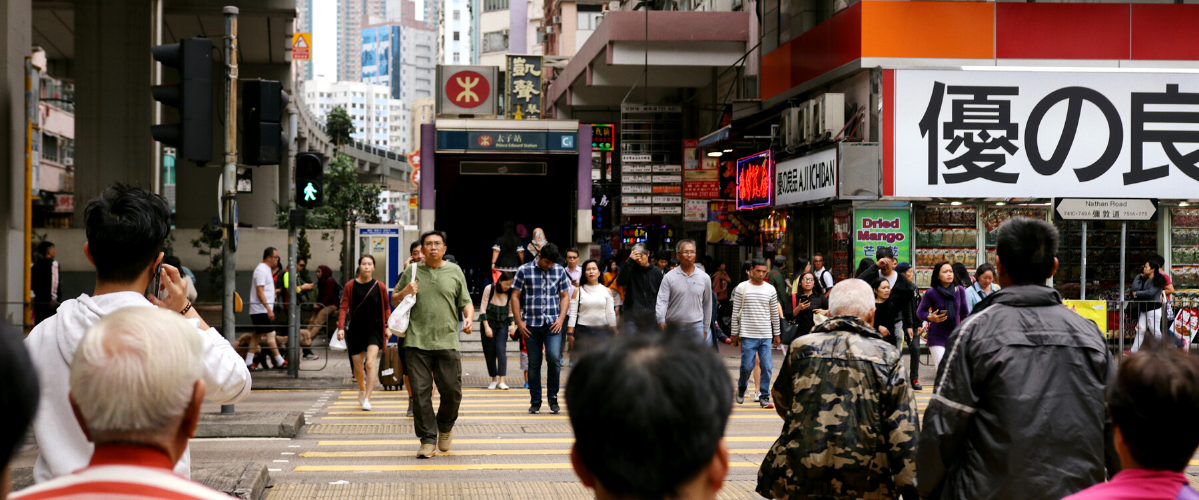Racism. It’s a powerful word. It evokes feelings of fear and anxiety for many; and when thought about being put into action: hatred. And it’s a word that describes what is rampant in our policies, institutions, systems, and structures. In Canada, our multi-cultural and diverse country, our ‘melting pot’, racism is still prevalent every day and everywhere.
Racism is a cultural and structural system, existing in all aspects of society. It’s pervasive but can be subtle; it assigns value and privilege based on race; it creates and reinforces beliefs, prejudices, and stereotypes, and normalizes discriminatory behaviours. There are different types of racism: internalized, interpersonal, and systemic. It’s a dynamic phenomenon, based on ever evolving persons, environments, and situations. Racism is ongoing and shifting in response to the world around us.
This point is particularly relevant because it’s what’s happening in relation to the novel coronavirus (COVID-19) right now. Since the outbreak started to garner worldwide attention there’s been blatant racism, discrimination, and hate directed towards people of Asian descent in response to the outbreak. And we don’t accept that.
A racist headline, plain & simple. Facing this global health emergency, we rely on media to provide accurate info, focus should be on combating the Novel Coronavirus (2019-nCoV). This kind of language will only fuel racist, xenophobic reactions. Not acceptable! Not Helpful! pic.twitter.com/r6k4EZXR9Z
— Jenny Kwan (@JennyKwanBC) February 6, 2020
Earlier this month, the Province newspaper put out the above headline. It was discriminatory and inappropriate. This same message was then graffitied at a Vancouver bus stop . The media has a responsibility to provide accurate, factual, and relevant information to the public; not to fuel the fire of discrimination and ignorance.
And, it’s not only the media who are contributing to a dangerous spread of misinformation and prejudice. We’re also seeing an onslaught of xenophobic and hate-laden comments on social media. Awful comments about diets, descriptions of this as a “Chinese disease”, stories of people being accosted and berated…it goes on. It’s everywhere, including Canada.
There’s a long history of diseases inciting fear of “the outsider” and “foreigner”, and ultimately discrimination that accompanies it.
Sadly, this isn’t new. There’s a long history of other diseases inciting fear of “the outsider” and “foreigner”, and ultimately the discrimination that accompanies it. Plague was framed as a “racial disease” in San Francisco in the early 1900’s, and an incorrect narrative emerged that people of European ancestry were immune to the illness. This was of course false, and simply ignored the many social, political, and economic reasons that cases emerged in areas where racialized communities lived. In 1916, during a typhus outbreak in Los Angeles County that affected Mexican individuals, public health officials implemented policies and actions that fed “scientific and popular prejudices about the biological inferiority of Mexicans”. Then, there was the stigmatization of Haitians in the early days of the AIDS epidemic.
The Ebola outbreak in Western Africa in 2014 was devastating to lives and socioeconomics of the region. It made headlines. If you google it, a lot of those headlines are about racism, xenophobia, fear and intolerance. The phenomenon was dubbed “Fearbola”.
And here we are, again. Feeling familiar?
The lifespan of these attitudes in the news and on social media doesn’t just end at a headline or in the comment thread. They infiltrate our institutions and power structures, and shows up in policies:
- There are anti-migrant policies denying refugees access to medical care, vaccines, treatment, and pre-natal care.
- Racism becomes institutionalized: “National response to AIDS in minority communities was slow, showing insensitivity to ethnic diversity in prevention efforts and AIDS health services“
Subjected groups experience broader, long-term, and generational impacts of racism and xenophobia, impacting their health outcomes over their lifespan
The repercussions of headlines, social media, and policies goes on to impact everyone, and the health of the entire population. Subjected groups experience broader, long-term, and generational impacts of racism and xenophobia, impacting their health outcomes over their lifespan (the social determinants of health). More acutely, it leads to a lack of access to treatment, and fear of accessing treatment, negatively impacting the affected individual because they can’t get care, and putting the broader population at risk.
Health leaders are calling on the public to stop. Dr Theresa Tam, Canada’s Chief Public Health Officer is calling out the racism:
5/5 #Racism, #discrimination and stigmatizing language are unacceptable and very hurtful. These actions create a divide of #UsVsThem. #Canada is a country built on the deep-rooted values of respect, diversity and inclusion. #EndStigma #2019nCOV #coronavirus pic.twitter.com/qianvvIwgn
— Dr. Theresa Tam (@CPHO_Canada) January 30, 2020
The stigma being created by ‘othering’ in light of the coronavirus is unwarranted. China has taken extreme measures to protect the world. They should and have been (by the World Health Organization) commended.
We can stop the spread of the hateful messages. It’s time to work together, to support each other, and to get through this outbreak as people with shared interests, commonalities, and a belief in the human condition as ultimately good.
We call upon everyone to stand up for others, and against hate. If you hear anyone saying discriminatory things or read messages on social media or in the news, say something. Report the post. We all have to play a role in stopping discrimination during this outbreak, and more broadly in our world.
This is a public health issue. The bad guy here is the virus. And nothing more.
